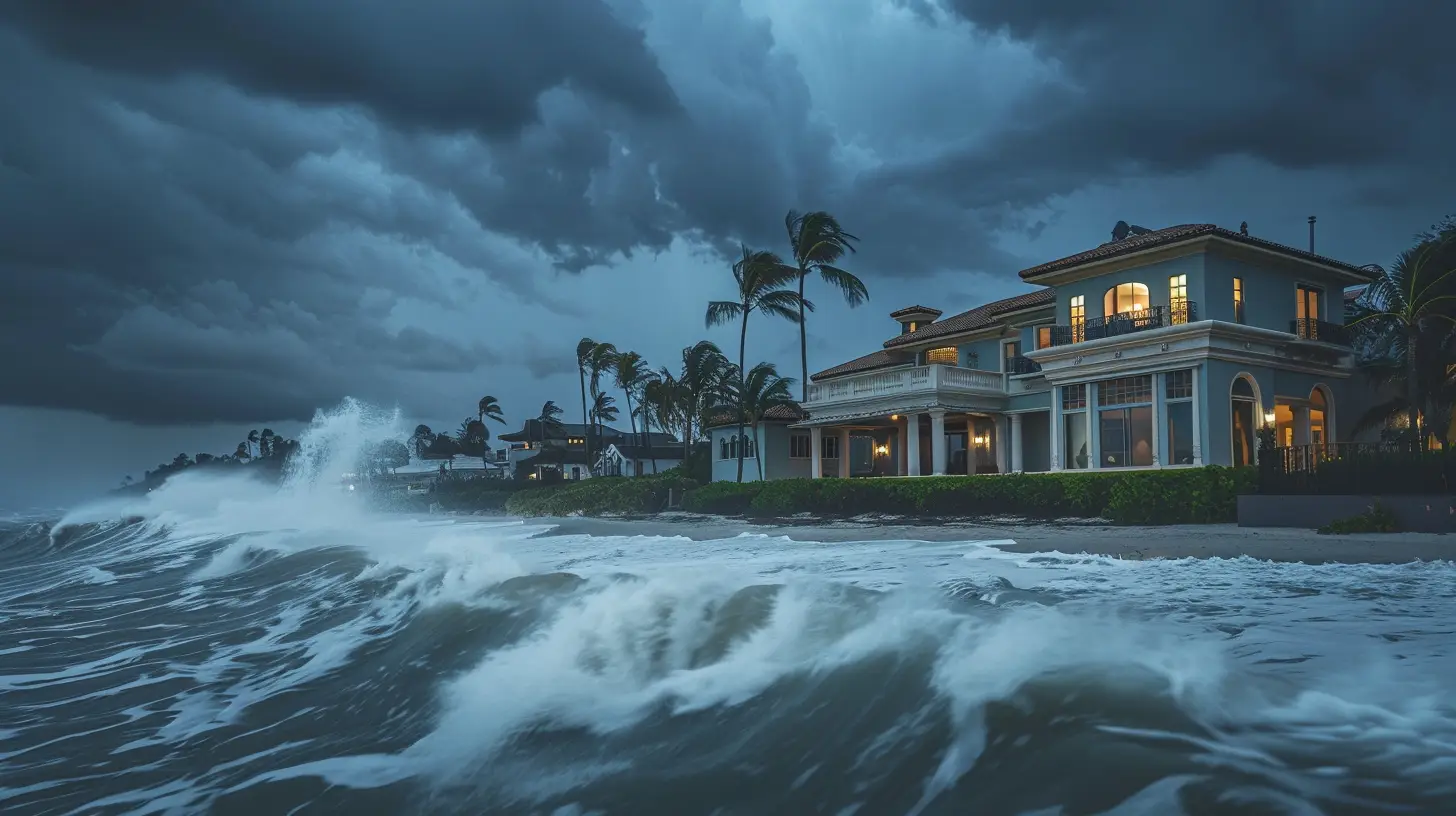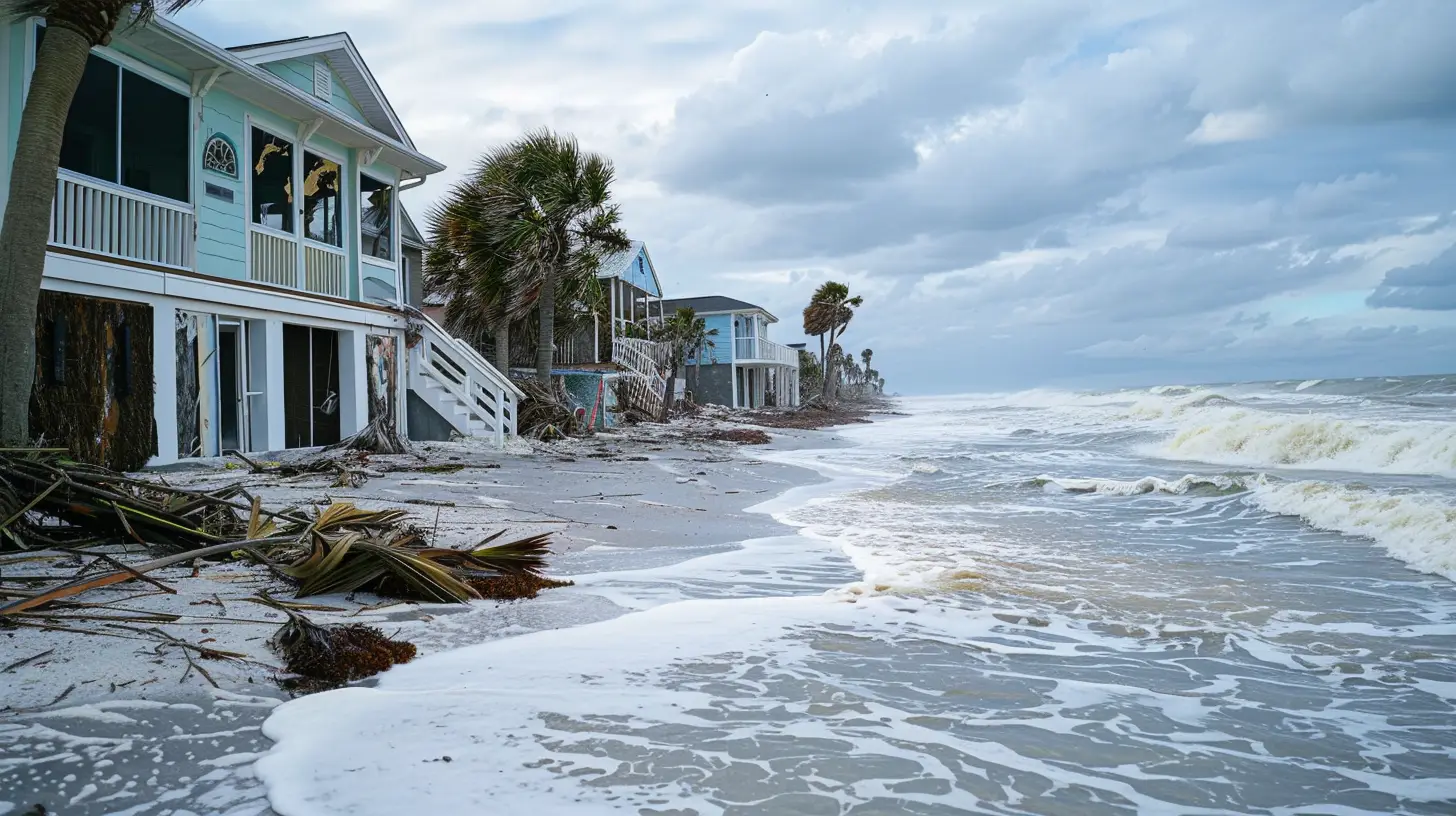Naples, Florida, a picturesque paradise with stunning beaches and a vibrant community, is not immune to the forces of nature. Hurricanes, powerful and potentially devastating storms, frequently threaten the Gulf Coast. For residents of Naples, understanding the importance of hurricane preparation is crucial for safeguarding lives, property, and the community as a whole. This comprehensive guide will delve into the reasons why hurricane preparation is essential and provide practical steps for residents to effectively prepare for these formidable natural events.

The Threat of Hurricanes in Naples
Naples, located in the heart of Florida’s Gulf Coast, is particularly vulnerable to hurricanes due to its geographical location. Hurricanes can bring catastrophic winds, heavy rainfall, storm surges, and flooding. The aftermath can lead to significant property damage, power outages, and disruptions to daily life. The 2017 Hurricane Irma is a stark reminder of the havoc such storms can wreak, causing widespread damage and long-lasting impacts on the community.

The Importance of Being Prepared
- Protecting Lives
The foremost reason for hurricane preparation is the protection of lives. Hurricanes pose a severe threat to human safety, with the potential for injury or death from high winds, flying debris, flooding, and structural collapses. By preparing adequately, residents can ensure they and their loved ones have the best chance of staying safe during a storm.
- Safeguarding Property
Homes and personal property are often significant investments. Hurricanes can cause extensive damage to structures, vehicles, and personal belongings. Proper preparation, such as securing windows and doors, reinforcing roofs, and storing outdoor items, can mitigate damage and reduce repair costs after a storm.
- Minimizing Financial Impact
The financial impact of hurricanes can be substantial. Beyond the immediate costs of damage and repairs, there are potential long-term economic effects, including loss of income due to business interruptions and increased insurance premiums. Preparing in advance can help minimize these financial burdens by reducing the extent of damage and speeding up recovery efforts.
- Ensuring Community Resilience
A well-prepared community is more resilient in the face of natural disasters. When residents collectively take steps to prepare for hurricanes, it enhances the overall safety and recovery capacity of the community. This resilience ensures that essential services can be restored more quickly, and life can return to normal sooner.

Practical Steps for Hurricane Preparation
- Develop an Emergency Plan
Every household should have a detailed emergency plan. This plan should include:
- Evacuation Routes: Identify multiple evacuation routes and practice them regularly.
- Communication Plan: Establish a communication plan with family and friends to stay connected before, during, and after the storm.
- Emergency Contacts: Keep a list of emergency contacts, including local authorities, medical facilities, and insurance providers.
- Create an Emergency Kit
An emergency kit is essential for surviving the aftermath of a hurricane. It should include:
- Non-Perishable Food and Water: Stock enough food and water to last at least 72 hours per person.
- Medical Supplies: Include a first aid kit, prescription medications, and any necessary medical equipment.
- Important Documents: Store important documents, such as identification, insurance policies, and medical records, in a waterproof container.
- Tools and Supplies: Pack flashlights, batteries, a multi-tool, blankets, and personal hygiene items.
- Secure Your Home
Protecting your home involves several steps:
- Shutters and Boarding: Install hurricane shutters or board up windows and doors to protect against flying debris.
- Roof Reinforcement: Strengthen your roof with hurricane straps or clips to prevent it from being blown off.
- Garage Doors: Reinforce garage doors to prevent them from collapsing under pressure.
- Outdoor Items: Bring in outdoor furniture, decorations, and equipment to prevent them from becoming projectiles.
- Stay Informed
Stay informed about the latest weather updates and evacuation orders:
- Weather Alerts: Sign up for local weather alerts and warnings from trusted sources like the National Hurricane Center.
- Local News: Monitor local news channels and radio stations for real-time updates and instructions.
- Community Resources: Utilize community resources, such as local government websites and social media pages, for information on shelters and emergency services.
- Insurance Review
Review your insurance policies to ensure adequate coverage:
- Homeowners Insurance: Verify that your homeowners insurance policy includes coverage for wind damage.
- Flood Insurance: Purchase separate flood insurance if your policy does not cover flooding, as standard policies typically do not include this.
- Document Valuables: Create a detailed inventory of your possessions, including photographs and receipts, to expedite the claims process if needed.
- Plan for Pets
Don’t forget to include your pets in your emergency plans:
- Pet Supplies: Prepare a kit for your pets, including food, water, medications, and comfort items.
- Shelter Arrangements: Identify pet-friendly shelters or have a plan for where your pets will stay if you need to evacuate.

After the Storm
Once the hurricane has passed, there are important steps to take during recovery:
- Safety First: Avoid returning home until authorities declare it safe. Beware of downed power lines, flooded areas, and unstable structures.
- Assess Damage: Carefully inspect your property for damage and document it with photographs and notes for insurance claims.
- Contact Insurance: Notify your insurance provider as soon as possible to start the claims process.
- Seek Assistance: Utilize community resources and assistance programs for help with recovery efforts, including food, water, and temporary housing.
Conclusion
Hurricane preparation is not just a precautionary measure but a crucial aspect of living in Naples, Florida. By taking proactive steps to prepare for hurricanes, residents can protect their lives, properties, and financial well-being. Moreover, a well-prepared community is better equipped to recover and rebuild in the aftermath of a storm. Embrace these preparations, stay informed, and ensure you and your loved ones are ready to face any hurricane that comes your way.
